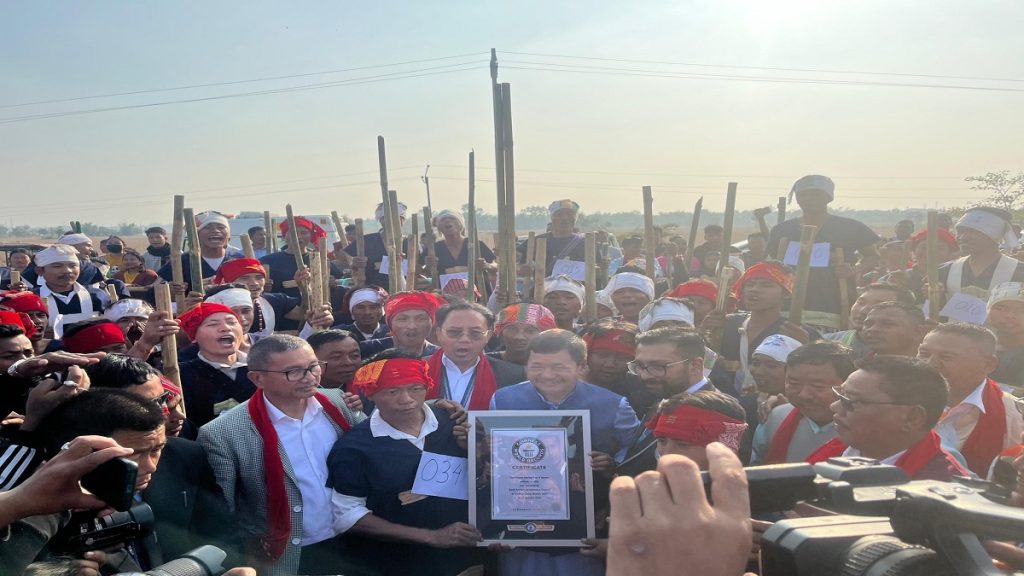A group of 721 men from the Karbi tribe successfully set a new Guinness World Record on Sunday for the longest single-file formation of stilt walkers in Assam’s Karbi Anglong district.
The specially-abled participants walked together on bamboo stilts for 10 minutes across a 2 km stretch on the Bokolia Bypass in Diphu city, headquarters of the autonomous district council.
The record attempt was organised by the Karbi Cultural Society and the Karbi Anglong Autonomous Council as part of 50th Karbi Youth Festival celebrations.
Adjudicator Rishi Nath certified the feat, handing over acknowledgment certificate to council head Tuliram Ronghang. The earlier 250-people benchmark was almost trebled by the Karbis.
Authorities stated the mass participation displayed preservation of Kengdongdang – a traditional bamboo stilt-walking sport integral to local culture.
“Taking our heritage sport to the global platform is a huge achievement. Karbis have kept traditions like stilt-walking thriving,” Ronghang remarked.
As per Guinness guidelines, all previous records were for stilt-walking groups but none featured such a long single-file formation. The Karbis also sought to highlight tribe customs.
The Karbi Cultural Society invested months of planning and mobilized expertise to train the 721 residents previous to the record attempt. Priority was ensuring proper coordination.
Stilt walking demands core strength, balance and agility to walk on narrow bamboo shafts often at height. Preventing toppling of participants was important for the record bid.
Autonomous councils have autonomy to frame policies safeguarding indigenous identity. Community elders welcomed the revival of ancient Karbi sports on an international platform. They believe it will inspire youth to embrace fading traditions.
Stilt-walking is a significant cultural practice among the Karbi community in Assam, India. Embraced during traditional festivals, this art form holds symbolic meaning within their cultural context. It involves community participation, often featuring individuals adorned in traditional attire.
The practice not only showcases the Karbi cultural heritage but also serves as a means of passing down traditional knowledge and skills to successive generations.
Integrated into larger cultural events, stilt-walking complements other traditional art forms, music, and dance, providing a holistic cultural experience. Additionally, it can attract tourists, offering them a glimpse into the rich and diverse cultural tapestry of the Karbi community.
